Is Roundup Safe for Pets? What Every Pet Owner Should Know
You want your lawn to be the most impressive on the block, but pesky weeds keep getting in your way. At the hardware store, Roundup catches your eye with the tagline, “Where there’s a weed, there’s a way.” But before you spray, you may be wondering — is Roundup safe for pets?
Roundup is the most common herbicide used in gardens and lawns. Its active ingredient, glyphosate, kills a wide variety of plants, including stubborn weeds like poison ivy, dandelions, and kudzu. Although effective, Roundup is controversial due to health concerns associated with glyphosate, including links to cancer, hormone disruption, and antibiotic resistance.
Over 750 products containing glyphosate are available for purchase in the United States,
according to the National Pesticide Information Center (NPIC).
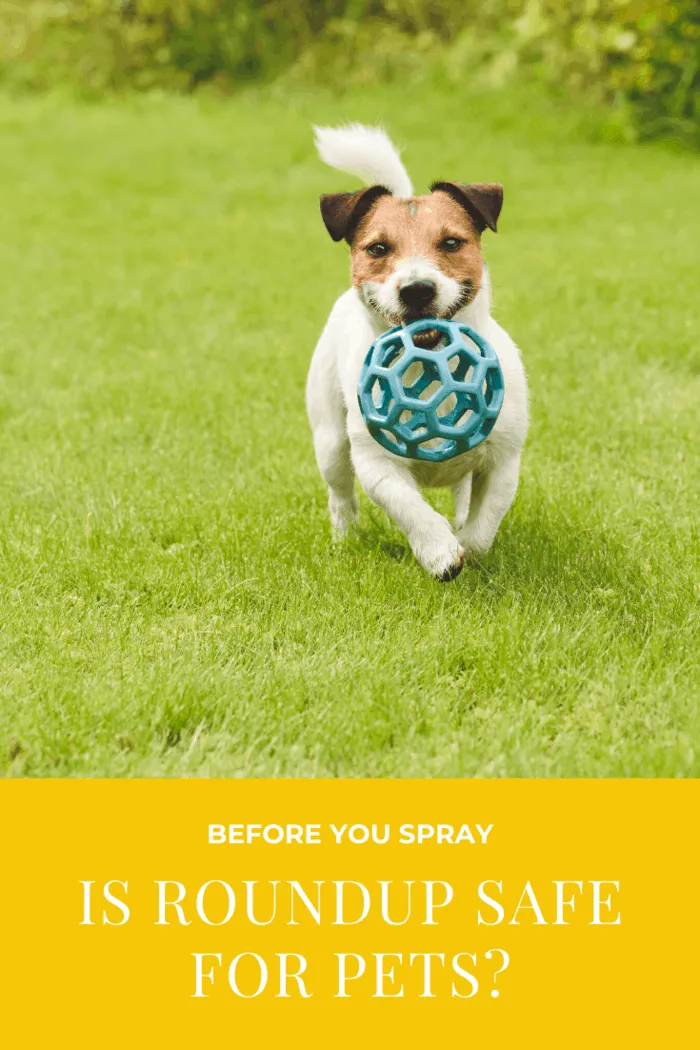
What Is Roundup and How Does It Work?
Introduced by Monsanto in 1974, Roundup became popular as a convenient weed killer. Since its patent expired in 2000, many other products containing glyphosate have flooded the market.
Glyphosate is a non-selective herbicide that kills plants by inhibiting a vital enzyme pathway (the shikimic acid pathway) needed for plant growth. Annual weeds die within days, while perennials may take up to ten days or more, depending on weather and sunlight.
“Glyphosate has been the subject of extensive research globally and is considered safe when used as directed,” says Dr. David Carpenter, Director of the Institute for Health and the Environment at the University at Albany.
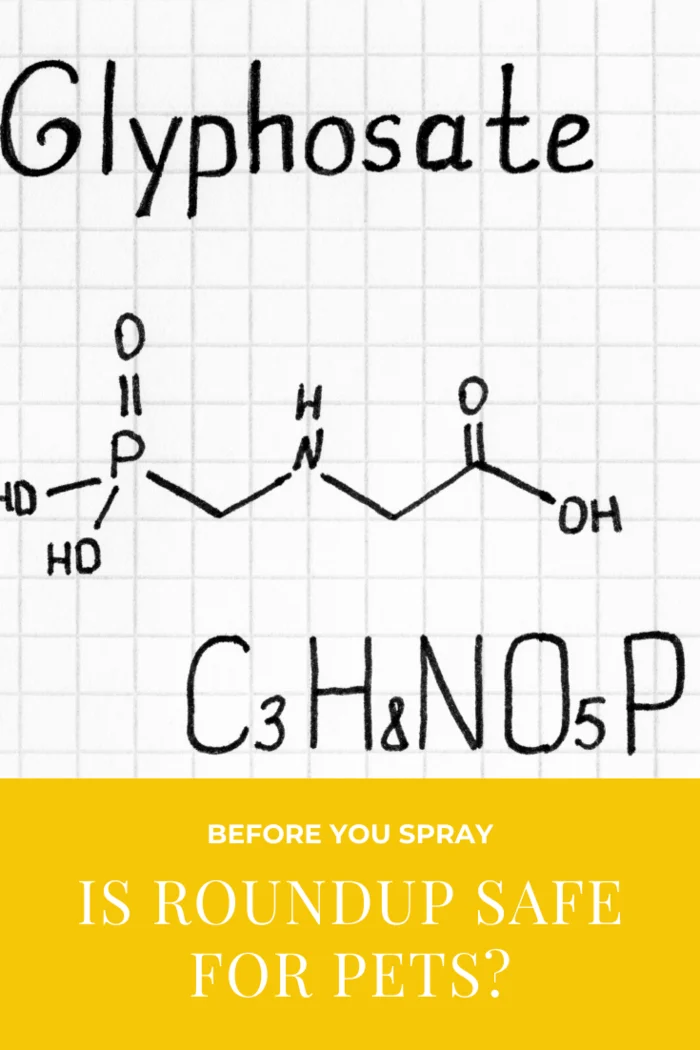
Environmental Impact of Glyphosate
Glyphosate binds tightly to soil particles, persisting for up to six months depending on soil and climate. Soil bacteria eventually break it down. It is found in waterways across 38 U.S. states and 70% of rainfall samples, although groundwater contamination is rare.
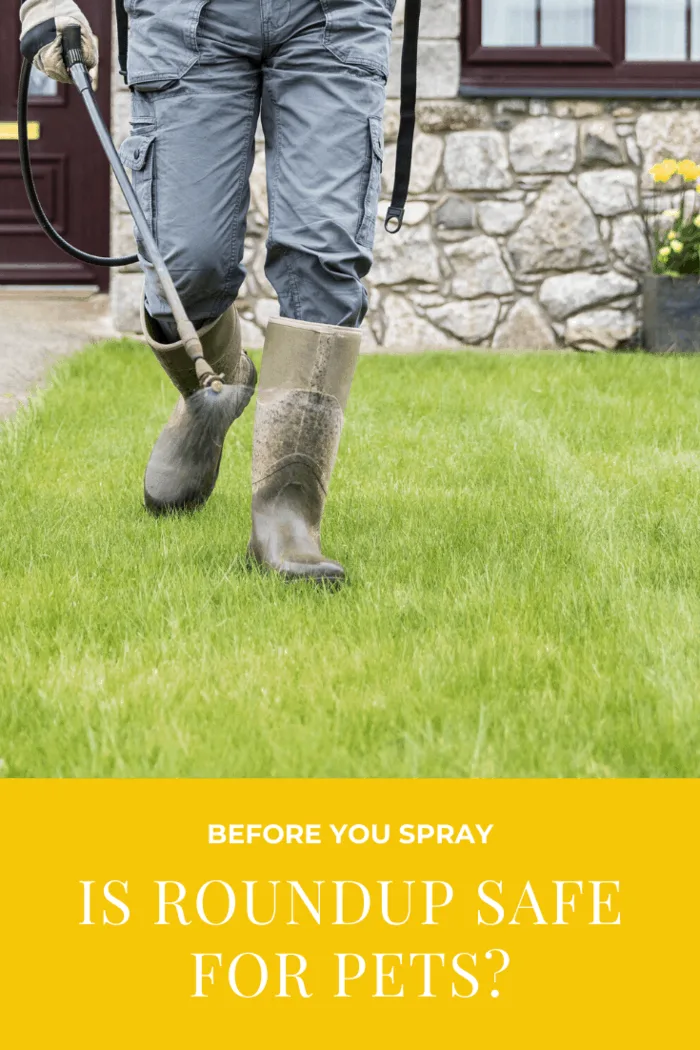
Health Effects of Glyphosate on Humans
The EPA considers glyphosate to have “low toxicity for humans” at typical exposure levels. However, studies show the complete herbicide mixtures (like Roundup) may be more toxic. Some research links glyphosate exposure to:
- Alzheimer’s Disease
- Autism
- Birth defects
- Brain cancer
- Cancer
- Heart disease
- Liver disease
- Reproductive problems
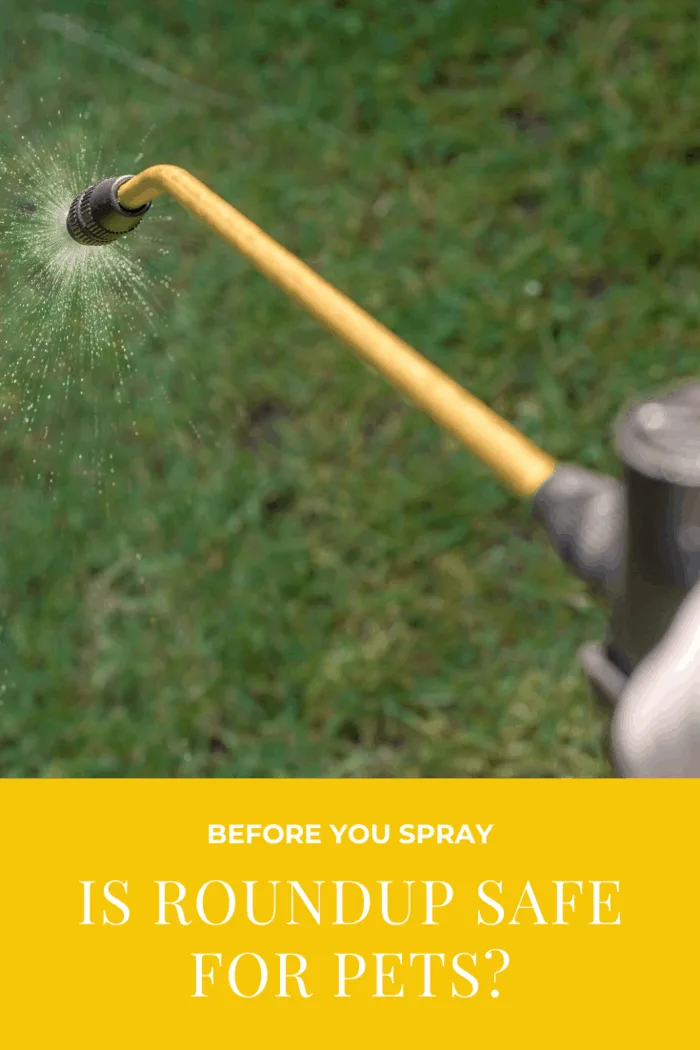
Is Roundup Safe for Pets?
Pets often have higher exposure to glyphosate than humans because they are closer to the ground, walk with unprotected paws, and may ingest treated grass or plants. One study found that dogs had glyphosate levels 50 times higher than humans on average.
“While the label suggests Roundup is safe once dry, the lack of comprehensive safety data for pets warrants caution,” advises Dr. Karen Becker, integrative wellness veterinarian and author of The Forever Dog.
Can You Use Roundup If You Have Pets?
The product label states Roundup is safe to walk on once dry — primarily to prevent tracking the herbicide to untreated areas, not necessarily for pet safety. To protect your pets, it’s best to avoid Roundup or keep pets off treated areas for at least 24-48 hours or until fully dry.
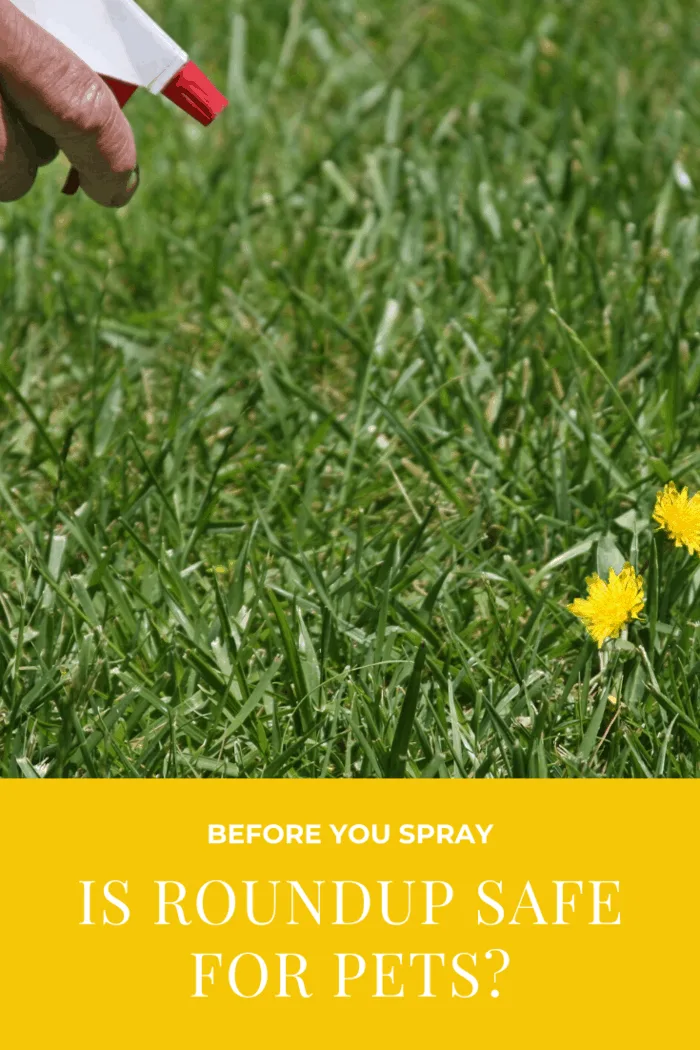
Pet-Safe Alternatives to Roundup
If you’re concerned about Roundup, there are safer herbicide options and gardening practices to try. Unlike glyphosate, these contact herbicides only kill plant tissue they touch and don’t affect new weeds emerging later.
Popular alternatives include:
- Herbicidal soaps
- Natural acids (vinegar and citric acid)
- Iron- or salt-based herbicides
- Essential oils (clove, peppermint, pine, citronella)
- Corn gluten
A Rodale Institute study found natural herbicides like vinegar and essential oils to be effective alternatives to synthetic chemicals in controlling weeds.
Final Thoughts
So, is Roundup safe for pets? The answer depends on your comfort level with existing research. While the label claims safety once dry, drying times vary by climate, and the chemical poses risks if ingested or touched while wet. If your pets tend to nibble on plants or dig in the soil, opting for natural, pet-safe herbicides is the wiser choice.
“Ultimately, the decision to use Roundup comes down to weighing the potential risks against the benefits. For pet owners, opting for safer, natural alternatives is a prudent choice,” concludes Dr. Michael W. Fox, veterinarian and animal behaviorist.
For more pet safety tips and gardening advice, check out our Pets Archive. Ready to shop? Support our blog by purchasing Roundup on Amazon or explore natural alternatives to protect your furry friends.
